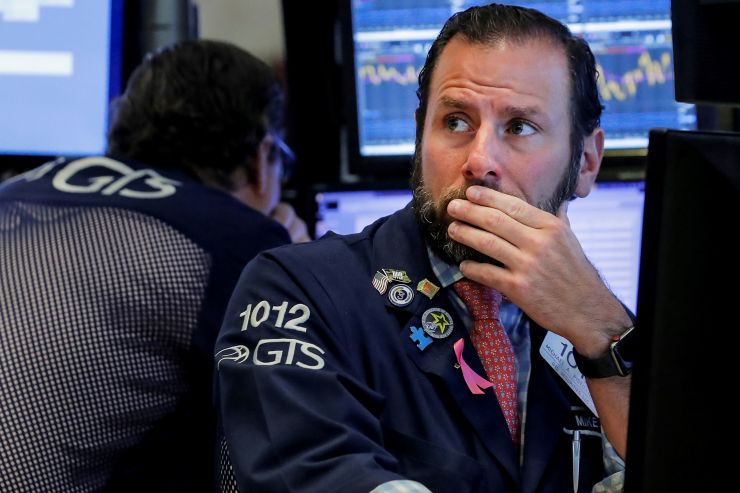
Investors are dumping stocks and corporate bonds at the fastest pace ever.
Mutual funds invested in equity and bonds lost a record $152 billion in December, while U.S. equity exchange-traded funds just had their first back-to-back weekly outflows since July 2018, shedding $7.1 billion in the last two weeks, according to TrimTabs Investment Research.
“Demand for US equity ETFs has been diminishing. The liquidity outlook for US equities remains downbeat. Our indicators remain neutral for the short term and outright bearish for the intermediate term,” David Santschi, TrimTabs’ director of liquidity research, said in a note Monday.
Major stock indexes had their worst December since the Great Depression, ending a tumultuous 2018 that saw their worst yearly performances since the financial crisis. The S&P 500 and Dow Jones Industrial Average were down 6.2 percent and 5.6 percent, respectively, for 2018. Much of the blame for the sell-off has been cast on the Federal Reserve’s rate increases, President Donald Trump’s tweets and the ongoing trade war with China, which dented the appetite for risk assets.
Although the stock market has seemed to find its way to recover in the new year, driven by the Federal Reserve’s more dovish stance and solid jobs numbers, the outlook for stocks still remains gloomy. The TrimTabs Demand Index, which uses regression analysis of fund flow and sentiment variables for intermediate-term timing, has been bearish for 13 consecutive trading days.
Last year’s underperformace also came at a time when corporate America was committed to buying back $1.34 trillion of its stocks, just shy of the annual record of $1.46 trillion in 2015. In December alone, U.S. firms announced $91.8 billion in corporate buying, a six-month high, according to TrimTabs. However, it was little use keeping the markets afloat as the Dow bled 8.6 percent in December.
“For only the second year in this decade, the S&P 500 did not move in the direction that corporate actions would predict,” Santschi said.
